Sergei Urusevsky
Nascimento : 1908-12-10, Saint Petersburg, Russian Empire
Morte : 1974-10-12
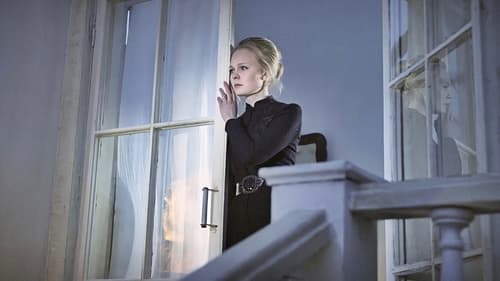
Director of Photography
About the life and work of the poet Sergei Yesenin, his connection with his native country, its people and nature. Childhood, love, painful searches for his place in the new, revolutionary Russia — everything found a place in Yesenin's lyrics. Frames illustrating Yesenin's poetry and poems are side by side in the film with episodes of the poet's biography: the film reflects the days of his stay in America, World War I, revolution and village round dances, a daring uncle, a wise mother...

Writer
About the life and work of the poet Sergei Yesenin, his connection with his native country, its people and nature. Childhood, love, painful searches for his place in the new, revolutionary Russia — everything found a place in Yesenin's lyrics. Frames illustrating Yesenin's poetry and poems are side by side in the film with episodes of the poet's biography: the film reflects the days of his stay in America, World War I, revolution and village round dances, a daring uncle, a wise mother...

Director
About the life and work of the poet Sergei Yesenin, his connection with his native country, its people and nature. Childhood, love, painful searches for his place in the new, revolutionary Russia — everything found a place in Yesenin's lyrics. Frames illustrating Yesenin's poetry and poems are side by side in the film with episodes of the poet's biography: the film reflects the days of his stay in America, World War I, revolution and village round dances, a daring uncle, a wise mother...

Director
Based on Chingiz Aitmatov’s novel "Farewell, Gyulsary!" The story of Tanabai the blacksmith, father of three children, who upon his return from war became a herdsman, and his tragic love for the soldier’s widow Byubyudzhan. The lyrical poem has an additional storyline concerning the horse Gyulsary and his master Tanabai.
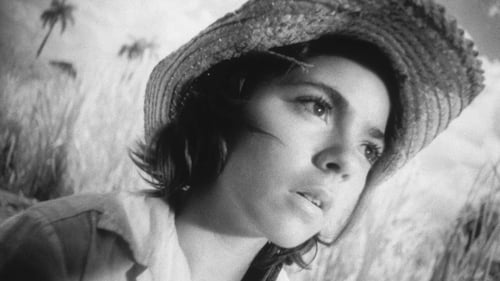
Cinematography
Quatro histórias independentes traçam um painel de Cuba entre a derrubada do regime de Batista e a revolução comunista. Em Havana, Maria envergonha-se quando o homem de quem gosta descobre como ela ganha a vida. Pedro, um camponês idoso, descobre que a terra que cultiva foi vendida a uma empresa. Um universitário vê seus amigos serem atacados pela polícia quando distribuíam panfletos a favor de Fidel Castro. Por fim, uma família de camponeses é ameaçada pelas forças de Batista.
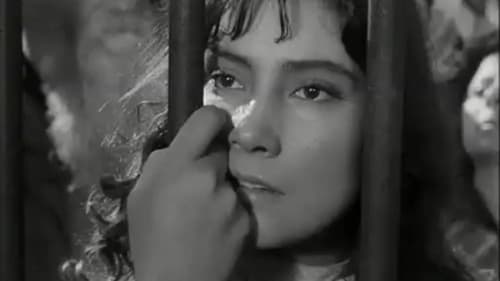
Director of Photography
Quatro geologistas estão em uma expedição em busca de diamentes na Sibéria. Após um longo período e uma jornada cansativa eles conseguem a sorte grande e colocam no mapa uma mina de diamantes. O mapa deve ser devolvido a Moscou, na Rússia, mas no dia em que deveriam partir de volta para casa um incêndio acontece na floresta. O incidente acab causando estragos e os geólogos ficam presos na floresta.
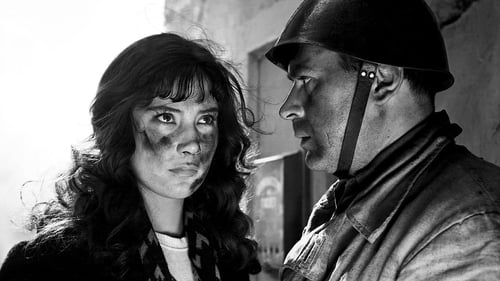
Director of Photography
Veronica e Boris estão andando nas ruas de Moscou e se amam. Veronica está rindo, porque eles são felizes juntos nesta manhã. Eles veem alguns guindastes no céu. Ao chegar à casa de Veronica eles falam sobre um encontro na margem do rio. E a 2ª Guerra Mundial começa em Moscou. Boris trabalha em uma fábrica e ele não tem tempo para falar com Verônica. Ele vai para a guerra sem se despedir de Veronica.

Cinematography
Filme de estréia de Grigori Chukhray, baseado na obra de mesmo nome de Boris Lavrenyov, “O Quadragésimo Primeiro” conta a história do romance ocorrido durante a Guerra Civil entre a jovem Mariutka, exímia atiradora do Exército Vermelho - com cartel de 40 inimigos abatidos – e um prisioneiro sob sua escolta, o tenente Nikolaievich do Exército Branco czarista. Uma sucessão de acontecimentos transporta os dois personagens do deserto de Karakum para uma ilha do mar de Aral, onde permanecem isolados numa cabana de pesca e temporariamente desligados do mundo, mas não de seus condicionamentos políticos e ideológicos.

Cinematography
In one of the steppe regions of Kazakhstan arrives on Komsomol youth squad. Severe frosts, spring mud flows, exhausting work than their specialty - the development of virgin land does not come easy. But the young are young - they work, enjoy life, fall in love. In the center of the story - the touching romance secretary of the Komsomol organization and tractor driver Anne.

Director of Photography
On falling in love with Sergey, Natasha gives up studies at a pedagogical institute and accompanies him to a construction site. In a course of time she realizes that her husband is interested only in his work. She leaves him, graduates from the institute and works as a teacher. But Sergey is fired for authoritative style of work and Natasha realizes that she must be near to him in his hour of need.
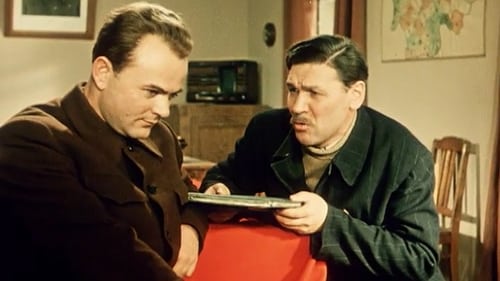
Cinematography
Originally titled Vozvrachenia Vassilya Bortnikov, Vassili's Return was the last directorial effort by the great V.I. Pudovkin, who died in June of 1953. Like many of Pudovkin's later works, the film was diluted by interference from communist party officials; what remains, however, is well worth having, if miles removed from the brilliance of his earlier Mother, End of St. Petersburg and Storm over Asia. Based on a novel by G. Nikolayeva, the story centers upon a Russian named Vassili (Serge Lukynaov), who leaves his wife to do battle against the Germans in WW II. When Vassili is reported to have been killed in battle, his wife Avodtya (Natalya Medvedeva) marries another man. Per the film's title, Vassili returns, only to find his wife ostensibly out of his reach. Vassili and his former spouse eventually reunite as friends if not lovers, working side by side on a state-approved collective farm.
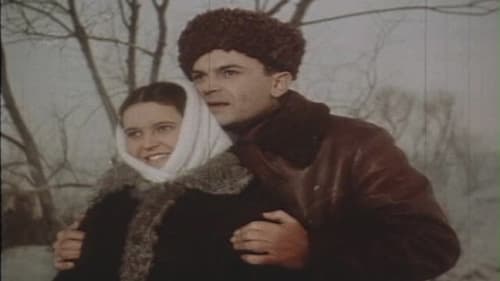
Cinematography
Soviet filmmaker Yuri Raisman once more combines political dogma with solid entertainment values in Dream of a Cossack (aka Cavalier of the Golden Star). The title character, played by future director Sergei Bondarchuk (and billed for obscure reasons as Semyon Bondarchuk), is an ex-soldier who returns home to the Kuban region, there to take up life as a farmer. Instead, he galvanizes the local citizenry into participating in a massive construction project, which will result in a new power station and canal. Thus does Raisman offer an prime example of Russian collectivism while making it seem as though it had sprung from individual initiative. Dream of a Cossack is based on a popular novel by S. Babayefsky.

Cinematography
Mark Donskoy went to the wilds of Siberia to film this Soviet movie about a community that resists the temptations of a wicked American capitalist who wants to exploit their lands.

Cinematography
A life-long story of a romantic school teacher who left imperial St. Petersburg for teaching country children. Driven by noble intentions to enlighten people and examples by 1880s revolutionary "People's Will" member teachers, a young woman spent her life in a village and evidenced the changes a Russian village has undergone from pre-revolutionary tsarist times to late 1940s.













